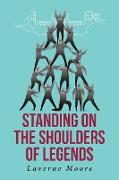A Tour Through England and Wales - Volume I
BücherAngebote / Angebote:
A TOUR THROUGH ENGLAND AND WALES VOLUME ONE DANIEL DEFOE INTRODUCTION BETWEEN the civil commotions of the seventeenth century and the great changes, political and economic, of the eventful years after Watts steam engine and the French and American Revolutions lies a tract of time, well known to students of politics and literature, but for the economic historian still largely uncharted and unexplored. Economic histories, until the last few years, have been apt to deal fully with the days of Queen Elizabeth and then, after a half-hearted sally into the seventeenth century, to take a deep breath and leap straight to the Industrial Revolution. The antecedents of that revolution are, indeed, described and we are told a good deal about the Mercantile System and the States ways of regulating trade and commerce, and also a good deal about the so-called Domestic System in the textile industries. A famous passage from Defoes Tour, which I am seeking to introduce to the modern reader, is often quoted, and hardly less often misunderstood, when the Domestic System is being described. We are told of Cromwells Navigation Act, and, very hazily, of Walpoles economic reforms. The East India Company and the newly created Bank of England loom large in the background. But the picture of economic and social England in the Augustan Age is left woefully incomplete and more than a little misleading even in the best of the text-books. In all of them, there is too much about Mercantilism and the Domestic System, and too little about the social and economic structure of the British community in this dawning time of the modern age. Slowly, indeed, this defect is being put right. Historians who quarrel about the effects of the Industrial Revolution and its repercussions upon the working people are compelled to go back in search of evidence for the support of their several opinions. Mrs. Georges scholarly London Life in the Eighteenth Century has been used by partisans as a counterblast to the alleged radical romanticism of the picture painted by Mr. and Mrs. Hammond in their books on the period of the Industrial Revolution. Was that period one of crushing severity, misfortune and degradation for the workers, or was it, on the contrary, one of chequered but indubitable economic and social advance The question cannot be answered until we know what England in the late seventeenth and early eighteenth centuries was like and, until quite recently, most of those who were active in the argument had hardly begun to know this. Daniel Defoes Tour through the Whole Island of Great Britain, though it makes no pretence of providing a detailed or accurate survey of the condition of the country, is by far the most graphic contemporary account of the state of economic and social affairs near the beginning of the eighteenth century. Read in conjunction with certain other books of its astonishingly industrious and vcrsatile author-with his Complete English Tradesmart, his Plan of the English Commerce, and his Family Instructor, for example-it does succeed in conveying an impression which no derivative history, however brilliant or scholarly, is ever likely to convey. For Defoe was, by temperament and way of life, extraordinarily wellfitted to paint the picture of that bustling time of economic and social transition in which he lived, and of which his own life was a remarkable manifestation. He wrote his Tour, indeed, in the guise of a popular guide-book and as a guidebook it achieved a great success, passing through nine distinct editions between its first issue 1724 and 1778, and undergoing revision at the hands of several successive editors, of whom one was Samuel Richardson, the author of Pamela and of Cluvissa Harlowe...
Folgt in ca. 15 Arbeitstagen




